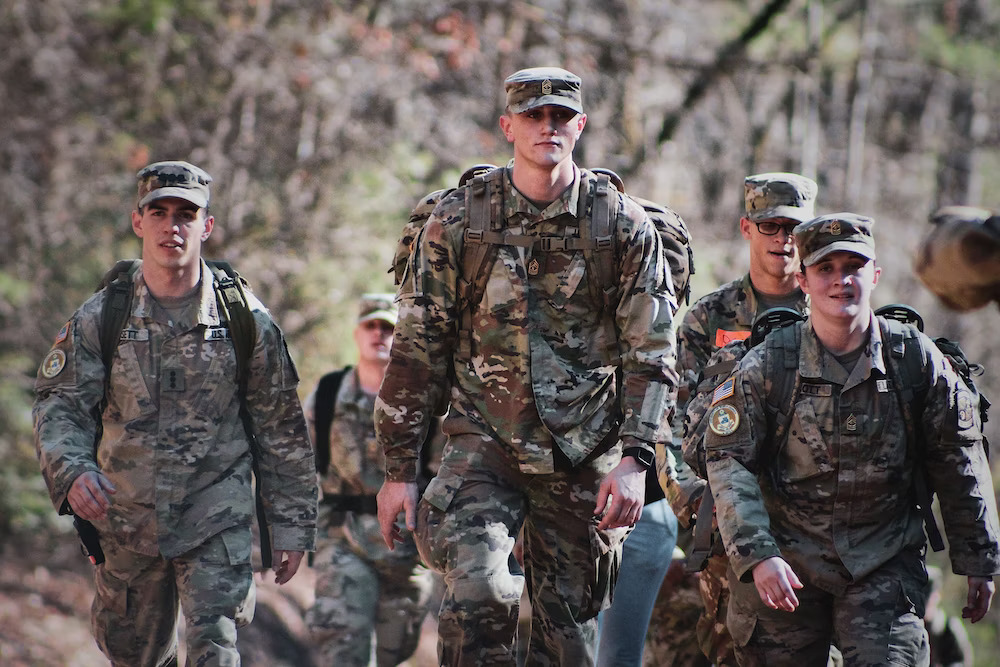What are the Differences Between a Military Court and a Civilian Court?

Understanding what differentiates a civilian court from a military court can make a significant impact when a service member is accused of a crime while on active duty. Moreover, knowing your rights under military law allows you to navigate military courts with confidence. This article will tackle the fundamental differences between these two courts.
Contents
The Basis of Military and Civilian Courts
First, you should know that the American military justice system is patterned after the British one. However, the American version has been modernized to limit the roles of commanders in administering justice. Until 1920, a commanding officer dissatisfied with a result could repeatedly return a case to a court-martial so the accused would get a harsher punishment.
After World War II, Congress worked to prevent the blatant disregard of an accused military member’s rights. Upon establishing the Uniform Code of Military Justice (UCMJ) in 1951, military courts in the Armed Forces were reformed to safeguard service members’ rights.
Meanwhile, the civilian court system was founded by President George Washington when he signed the Judiciary Act of 1789. This law established a federal civilian court system that differed from state courts.
Military law follows the rules and regulations of the Uniform Code of Military Justice, while civilian courts base their judgment on state and federal laws. In other words, these courts follow civilian law. Thus, a military judge should be well-versed in the UCMJ.
Differences Between Military Court and Civilian Court
Jurisdiction and Scope of Military Justice
Military trials can be handled in three ways, depending on the offense’s severity and the maximum penalties applicable to the case. A general court-martial involves the most severe violations, essentially felony-level crimes. A service member can get a dishonorable discharge, pay forfeiture, life imprisonment, and even the death penalty through a general court-martial.
The second type of military trial is a summary court-martial. This type of court-martial handles minor crimes using simple procedures. The punishments for this type of court-martial include pay forfeiture, monthly confinement, reduced military rank, and hard labor.
The third type of military trial is a special court-martial. This type of court-martial involves misdemeanor crimes. The penalties given by this court may include hard labor for up to 90 days, a bad-conduct discharge, forfeiture to pay, and confinement for up to one year.
Whether it’s a general courts-martial or other types of military trial, these courts abide by the rules and regulations of the Uniform Code of Military Justice (UCMJ). As authorized by the US Constitution, a military court has jurisdiction over military members and, in some cases, retired service members. Meanwhile, civilian courts can hear cases authorized by the United States Constitution or federal statutes. Civilian courts may hear cases involving military members if they violated civilian law.
If a service member is to appear before a court-martial, it would be ideal that they confer with an experienced military lawyer. These professionals understand military law and are updated to the latest rule changes. Service members can obtain one for free or employ one on their own.
Meanwhile, criminal trials in civilian courts can be handled by civilian lawyers only.

Procedures and Processes
When the crime involves severe or felony offenses in the military, the case is investigated by a criminal investigative agency, such as the Army’s Criminal Investigation Command (CID). Meanwhile, minor offenses are handled by military or security police investigators. The accused’s immediate commander may decide on their punishment in very minor cases.
Regardless of the military case’s severity, the accused’s military commander is involved in every step of the military court process. That commander must exercise discretion when deciding if an offense should be charged and how the offenders should be punished.
The procedural requirements are unique in a military court-martial. The military follows rules of evidence patterned after the Federal Rules of Evidence. The members or judge hears evidence and decides on the accused’s guilt. The members must be persuaded beyond a reasonable doubt that the accused is guilty to convict the accused. If the accused is convicted, a sentencing hearing is held.
The accused is entitled to a review of their trial. The first step to appeal the verdict is through a study by the convening authority. The next step is the appellate process, which involves the Court of Appeals for the Armed Forces.
Verdict
Another critical difference between military and civilian systems is how the verdict is decided. In civilian cases, the jury members must vote unanimously for punishment. Meanwhile, a split verdict is allowed for criminal trials in military cases. This means that 3/4 of the majority should vote on a penalty.
Types of Cases Handled by the Civilian Court and Military Court
A military court may only handle cases involving service members who violated the UCMJ. Meanwhile, civilian courts try violators of civilian law, which may include military personnel. Thus, the cases would depend on which type of law the accused violated.
Conclusion

Understanding the differences between military and civilian courts is vital for service members facing trial. You should know the right people to ask for help. If you want to learn more about life in the military and military verification, please explore our website further.
FAQs
What is the military court in the United States?
Military courts are the authority organizations that handle military cases. Service members who violate the UCMJ must answer to this court.
What is the purpose of a military court?
This court’s purpose is to punish military personnel who violated the UCMJ. The court’s job is to uphold the law and ensure all violators are punished appropriately.
What is the purpose of the US Court of Military Appeals?
This institution exercises worldwide appellate jurisdiction over members of the armed forces on active duty and other persons subject to the UCMJ. This is the appeals court of the military worldwide.






